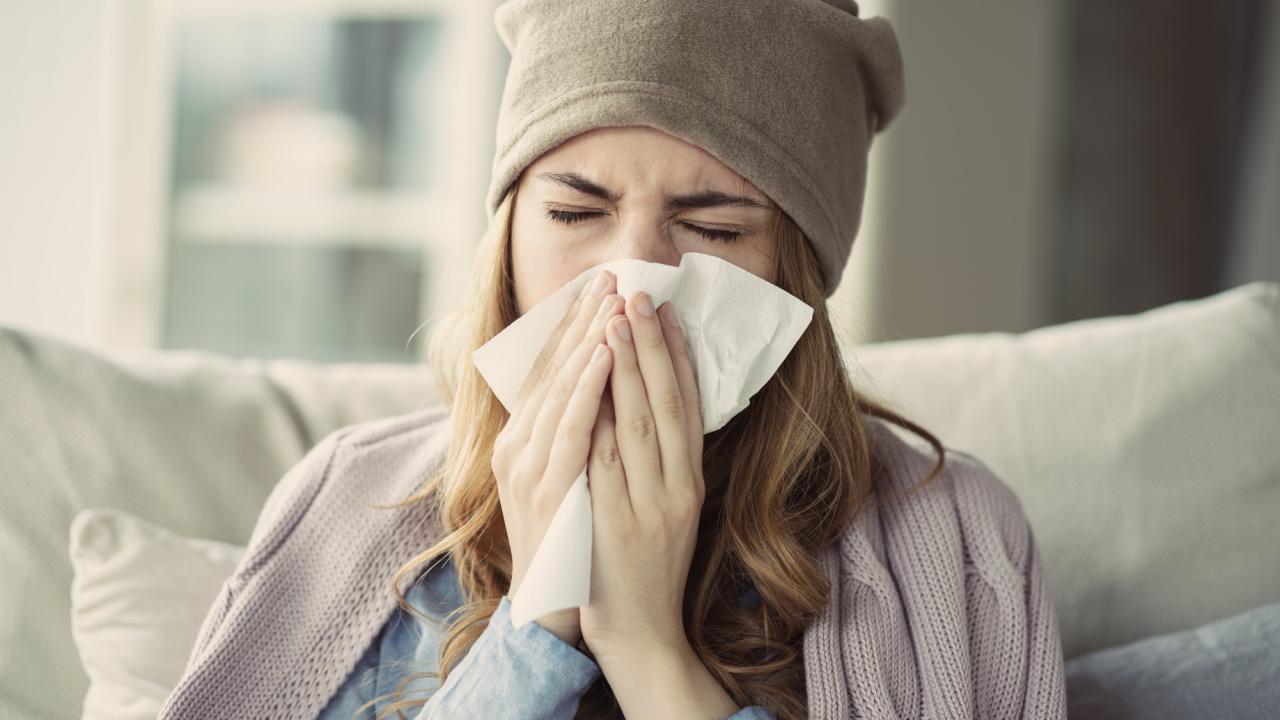 Auremar/PhotoSpin
Auremar/PhotoSpin
Allergies and asthma are two conditions that overlap. An allergy is when a person has an inflammatory reaction from exposure to a particular substance. Mild allergic responses can include itchy or watery eyes, stuffy or runny nose, sneezing, irritated skin. In severe reactions, difficulty breathing and swelling of the tongue can occur.
Asthma is a chronic lower airway disease that causes difficulty breathing due to narrowing of the airways. It is also an inflammatory disease and can be divided into two main types allergic (extrinsic) or non-allergic (intrinsic).
Triggers for non-allergic type of asthma include anxiety, stress, exercise, cold air, hyperventilation or inhaled irritants such as smoke. For non-allergic asthma, the immune system is not involved in this response.
Allergic asthma is triggered by inhaling an allergen such as dust mites, pet dander or mold. An allergic response to the substance leads to swelling inside the breathing tubes, which narrow them due to inflammation. The body’s immune system gears up to fight the allergen.
“Allergic asthma is the most common form of asthma, affecting over 50% of the 20 million asthma sufferers. Over 2.5 million children under age 18 suffer from allergic asthma,” reported Asthma and Allergy Foundations of America.
Asthma Symptoms:
Symptoms of asthma, both allergic and non-allergic, are coughing, wheezing, chest tightness, shortness of breath and increased breathing rate. A person may not feel all these symptoms each time they have an asthma attack. Symptoms can be mild in some attacks and more severe in others.
A person may also feel early warning signs that an asthma attack is starting. They may start having increased coughing, especially at night, increased shortness of breath or weakness while exercising, difficulty sleeping or symptoms of a cold, upper respiratory infection or allergies.
Diagnosing allergies, asthma or allergic asthma:
In order to diagnosis whether a person has allergies, asthma or allergic asthma, a physician must take a thorough history and physical exam.
Information about family history, and about exposure to environmental irritants such as pet dander or pollen will need to be discussed. A history of eczema or other allergies increase the likelihood that one may have developed asthma.
A physical exam for asthma includes pulmonary function tests to determine lung airflow. The doctor may test a posible trigger by exposing you to a potential allergic substance. If he thinks exercise it the cause, he may check your lung function before and after exercise.
Allergies are often tested for by using skin tests, either from a small skin prick or by applying a patch of an allergen against the skin and checking it after 48 hours.
Allergy tests will not be able to test for asthma but they may give information as to whether your allergies may be causing your asthma.
Blood tests may be taken to check for allergies while X-rays and sputum cultures may be sent to test for asthma.
Treatments for allergies and asthma:
Allergy treatments may include antihistamines, eye drops, and corticosteroids in a nasal spray or in oral medication. To reduce one’s sensitivity to allergens, allergy shots or sublingual immunotherapy (SLIT) may be tried.
Asthma may also be treated using corticosteroids but other drugs are used that prevent airway swelling and inflammation. Inhaled or oral drugs called beta-agonists are used to prevent narrowing of the airways from bronchospasm. A drug called theophylline is often used for persistent symptoms.
Prevention for asthma and allergies:
Both asthma and allergies benefit from prevention behaviors by avoiding possible triggers and allergens and monitoring what makes symptoms better or worse. It is also important to take medications on a regular schedule.
Sources:
What Is the Difference Between Allergies and Asthma? Emedicine Health. Retrieved May 3, 2015.
http://www.emedicinehealth.com/asthma_faqs/page5_em.htm
http://www.emedicinehealth.com/asthma_faqs/page4_em.htm
What Are the Most Common Symptoms of Asthma? WebMD. Retrieved May 3, 2015.
http://www.webmd.com/allergies/guide/asthma-allergies?page=2
Asthma and Allergies. Asthma and Allergy Foundations of America. Retrieved May 3, 2015. OVERVIEW
https://www.aafa.org/display.cfm?id=8&cont=5
Causes:
https://www.aafa.org/display.cfm?id=8&cont=7
https://www.aafa.org/display.cfm?id=9&cont=80
Treatment:
https://www.aafa.org/display.cfm?id=8&cont=8
https://www.aafa.org/display.cfm?id=9&cont=81
Michele is an R.N. freelance writer with a special interest in woman’s healthcare and quality of care issues.
Edited by Jody Smith





Add a CommentComments
There are no comments yet. Be the first one and get the conversation started!